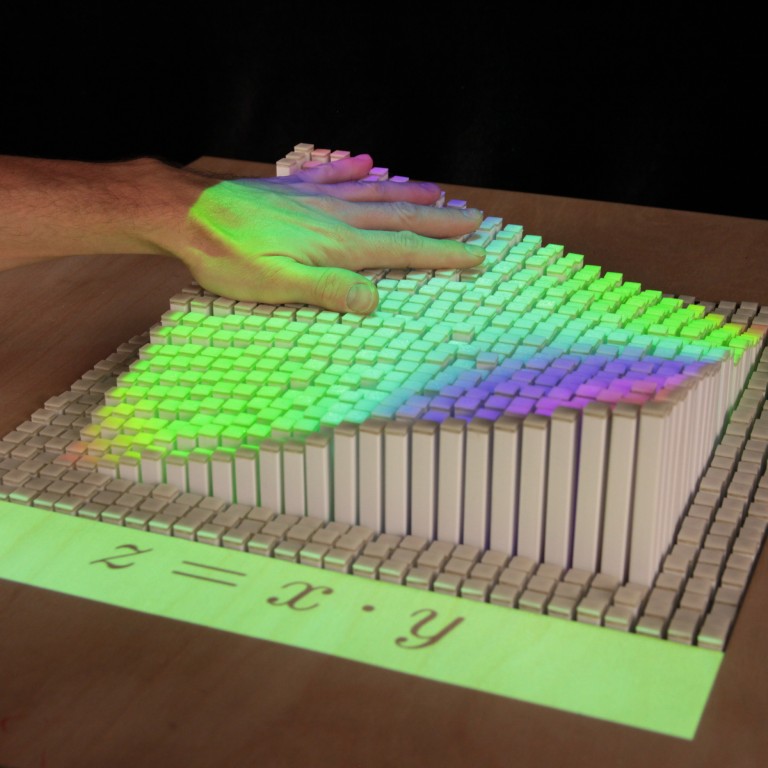
MIT students develop 3D touchscreen display that could touch you
Like a sci-fi fantasy come true, Massachusetts Institute of Technology (MIT) students have created a tangible display that allows users to touch things through their computer screens.
Daniel Leithinger and Sean Follmer, PhD candidates at the MIT Media Lab in Boston, recently unveiled inFORM, a shape display that can render 3D content physically.
It works like an old-school pinscreen toy, except that under each pin is a motor that reacts to a ‘kinect’ depth-sensing camera, the camera then captures the depth data and transmits it to the table, where action is rendered through the pins.
The introduction video shows inFORM used in many different ways – moving objects across a table, creating 3D models, rendering buttons and menus when they are needed.
The designers drew inspiration from their frustration with modern touch-screen technology, which does not provide interactive, physical feedback.
“We see a need for displays to become more physical again. This could make future smartphones and tablets much more intuitive and satisfying to use,” said Leithinger.
Amazing as it seems, inFORM has its limitations. Pins on a table cannot create any overhands, and the pins can only move up and down, which means the user would not be able to grasp an object, as that would require sideway force.
So far, the team has attracted the attention of several businesses, “musicians who want to create new musical instruments, or people who want to make an interface for blind users,” Leithinger said, adding that “it’s inspiring people and we’re glad so many ideas are coming in”.
While inFORM is not going to become a consumer product anytime soon, its creators believe it’s a step in the right direction.
“Going beyond pixels and being able to directly touch a physical representation of another person or remote object had been a dream of many researchers and sci-fi authors before, we hope that our table is a little step in that direction” said Leithinger.
